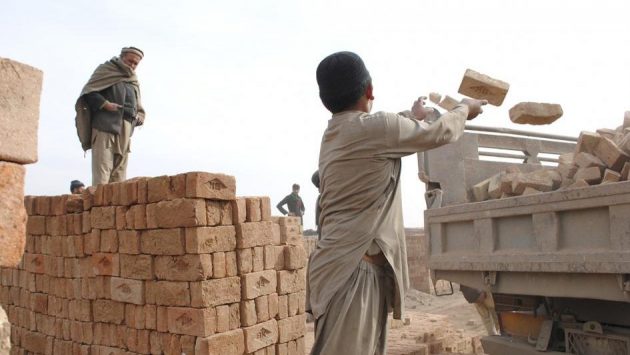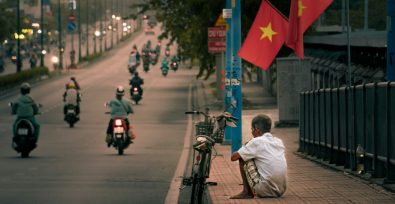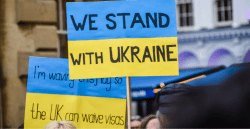Nearly a quarter of children in Afghanistan–ages 5 and 14–have jobs to help their families survive. A number of them work in hazardous situations that may cause illness or injury because safety and health standards are not enforced…
Yes, [the child workers] complain of pain, but what can they do? The kids are here to make a living. They bear all the pain to do all the work. –Sher Khan, brick kiln manager, Kabul,
They are made to work extended hours with little or no pay. Sometime they work jobs in the carpet industry or as bonded laborers in brick kilns or in the metal industry as tinsmiths and welders. They also take jobs in mines; in agriculture; and on the streets as vendors, shoe shiners, and beggars.
Having to work, keeps children from attending school. Only about 50% of child workers in the country go to school. Afghanistan is one of the world’s poorest countries, and the extreme poverty forces many children–some as young as five-years-old–to work under hazardous conditions. Children between 15 and 17 are allowed to work if the workplace is safe and demands less than 35 hours per week.
Not all work by children is considered harmful. When work is appropriate to a child’s age and takes place under healthy and safe conditions, it can be beneficial to the child’s development and allow them to contribute to their family’s basic needs.
So what are the factors of poverty and child labor? Landlessness, illiteracy, high unemployment, armed conflict in the country, and shortage of strong adult workers.
A representative of the Ministry of Labor: “Unfortunately, we have not even had the minimum budget for social support programs. This is mostly because the national budget was mostly spent on security and less on social issues, particularly vulnerable children.”







Freedom United is interested in hearing from our community and welcomes relevant, informed comments, advice, and insights that advance the conversation around our campaigns and advocacy. We value inclusivity and respect within our community. To be approved, your comments should be civil.